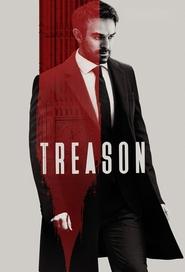In English law, high treason was punishable by being hanged, drawn and quartered (men) or burnt at the stake (women), although beheading could be substituted by royal command (usually for royalty and nobility). Those penalties were abolished in 1814, 1790 and 1973 respectively. The penalty was used by later monarchs against people who could reasonably be called traitors. Many of them would now just be considered dissidents.[3]Treason Season 1 Download
Christian theology and political thinking until after the Enlightenment considered treason and blasphemy synonymous, as it challenged both the state and the will of God. Kings were considered chosen by God,[4] and to betray one’s country was to do the work of Satan.[citation needed]The words “treason” and “traitor” are derived from the Latin tradere, “to deliver or hand over”.[5] Specifically, it is derived from the term “traditors”, which refers to bishops and other Christians who turned over sacred scriptures or betrayed their fellow Christians to the Roman authorities under threat of persecution during the Diocletianic Persecution between AD 303 and 305.Originally, the crime of treason was conceived of as being committed against the monarch; a subject failing in his duty of loyalty to the Sovereign and acting against the Sovereign was deemed to be a traitor. Queens Anne Boleyn and Catherine Howard were executed for treason for adultery against Henry VIII, although most historians regard the evidence against Anne Boleyn and her alleged lovers to be dubious. As asserted in the 18th century trial of Johann Friedrich Struensee in Denmark, a man having sexual relations with a queen can be considered guilty not only of ordinary adultery but also of treason against her husband, the king.
The English Revolution in the 17th century and the French Revolution in the 18th century introduced a radically different concept of loyalty and treason, under which Sovereignty resides with “The Nation” or “The People” – to whom also the Monarch has a duty of loyalty, and for failing which the Monarch, too, could be accused of treason. Charles I in England and Louis XVI in France were found guilty of such treason and duly executed. However, when Charles II was restored to his throne, he considered the revolutionaries who sentenced his father to death as having been traitors in the more traditional sense.


 1 - AllS01-Ep(1-5) Mar. 12, 2025
1 - AllS01-Ep(1-5) Mar. 12, 2025



















![The King of Pigs [S01 Complete]](https://image.tmdb.org/t/p/w185/9KNJQttKmk1FVGjvNjKYNQSmsyZ.jpg)


